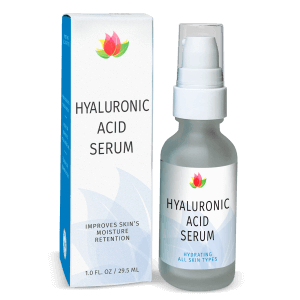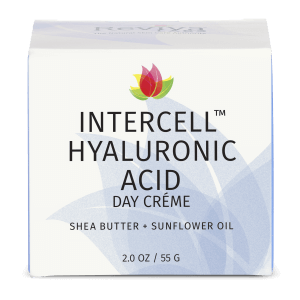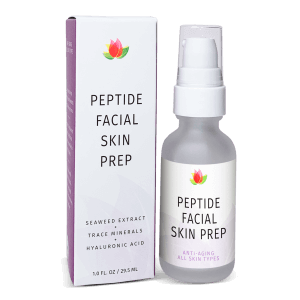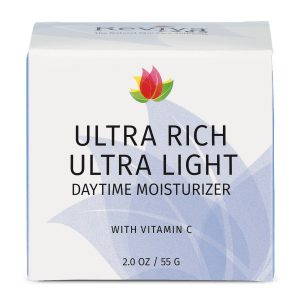Ingredients, Reviva Labs, Skin Care
What does a hyaluronic acid serum do for skin?
Hyaluronic acid is a naturally occurring compound that plays a vital role in maintaining the health and appearance of our skin. As we age, the production of hyaluronic acid in our bodies decreases, leading to dryness, wrinkles, and loss of firmness. Luckily, hyaluronic acid can be found in various skincare products and can also be taken as a supplement to replenish and enhance the skin’s hydration and overall health.
In this simple guide, we’ll delve into the benefits, uses, and tips for incorporating hyaluronic acid into your skincare routine. From understanding its role in promoting healthier, more supple skin to exploring its ability to speed up wound healing and relieve joint pain, we’ll cover everything you need to know about this powerful ingredient. So, let’s dive in and discover the wonders of hyaluronic acid!
What is Hyaluronic Acid?
The Basics of Hyaluronic Acid
Hyaluronic acid, also known as hyaluronan, is a naturally occurring molecule found in various tissues and fluids in our bodies, including the skin, eyes, and joints. It is a clear, gel-like substance that acts as a lubricant and shock absorber, helping to keep our tissues moist and well-hydrated. With its exceptional ability to retain water, hyaluronic acid can hold up to 1,000 times its weight in water, making it a crucial component for maintaining the hydration and elasticity of the skin.
The Significance of Hyaluronic Acid in Skin Health
The skin is the largest organ in our body and serves as a protective barrier against external aggressors. Hyaluronic acid plays a pivotal role in skin health by keeping it hydrated, plump, and supple. However, as we age, the natural production of hyaluronic acid declines, leading to dryness, fine lines, and a loss of firmness.
The Benefits of Hyaluronic Acid for Skin
Benefit 1: Intense Hydration
One of the most significant benefits of hyaluronic acid is its ability to provide intense hydration to the skin. By attracting and retaining moisture, hyaluronic acid helps to replenish and restore the skin’s moisture barrier, preventing dryness and dehydration. This deep hydration not only makes the skin appear plumper and more youthful but also helps to reduce the appearance of fine lines and wrinkles.
Benefit 2: Improved Elasticity and Firmness
As we age, the loss of hyaluronic acid contributes to a decrease in skin elasticity and firmness. By replenishing the skin’s hyaluronic acid levels, either through topical application or supplementation, we can help improve the skin’s elasticity and restore its natural firmness. This results in a more youthful and resilient complexion.
Benefit 3: Enhanced Skin Texture and Smoother Appearance
Dry and dehydrated skin often appears rough and uneven. Hyaluronic acid’s hydrating properties help to smooth the skin’s texture, giving it a softer and more refined appearance. Regular use of hyaluronic acid can also help to minimize the appearance of pores, giving the skin a more even and flawless look.
Benefit 4: Reduction of Fine Lines and Wrinkles
As mentioned earlier, hyaluronic acid has the ability to attract and retain water, which plumps up the skin and reduces the appearance of fine lines and wrinkles. By providing deep hydration to the skin, hyaluronic acid helps to fill in and smooth out these signs of aging, leaving the skin looking more youthful and rejuvenated.
Benefit 5: Protection Against Environmental Damage
Our skin is constantly exposed to environmental stressors such as UV radiation, pollution, and free radicals, which can accelerate the aging process. Hyaluronic acid acts as an antioxidant, helping to neutralize these harmful free radicals and protect the skin from damage. This antioxidant property of hyaluronic acid contributes to a more resilient and healthier complexion.
Benefit 6: Soothing and Calming Effect
Hyaluronic acid has soothing and calming properties, making it an excellent ingredient for sensitive and irritated skin. It helps to reduce redness, inflammation, and discomfort, providing relief to those with sensitive or reactive skin conditions such as rosacea or eczema.
Benefit 7: Accelerated Wound Healing
In addition to its skincare benefits, hyaluronic acid also plays a crucial role in wound healing. It promotes tissue repair by regulating inflammation levels and stimulating the production of new blood vessels in the damaged area. This helps wounds to heal faster and reduces the risk of infection.
Benefit 8: Increased Collagen Production
Collagen is a protein that provides structure and support to the skin. Hyaluronic acid has been shown to stimulate the production of collagen, leading to improved skin elasticity and a more youthful appearance. By boosting collagen synthesis, hyaluronic acid helps to maintain the skin’s integrity and prevent sagging or drooping.
Benefit 9: Protection Against Photoaging
Exposure to UV radiation from the sun can cause premature aging of the skin, known as photoaging. Hyaluronic acid acts as a natural sunscreen, protecting the skin against the harmful effects of UV rays and preventing photoaging. It helps to repair and regenerate the skin cells damaged by sun exposure, keeping the skin looking youthful and healthy.
Benefit 10: Versatility in Skincare Products
Hyaluronic acid is a versatile ingredient that can be found in various skincare products, including serums, moisturizers, masks, and even makeup. Its compatibility with other ingredients allows it to enhance the efficacy of these products and deliver optimal results. Whether used alone or in combination with other beneficial compounds, hyaluronic acid is a valuable addition to any skincare routine.
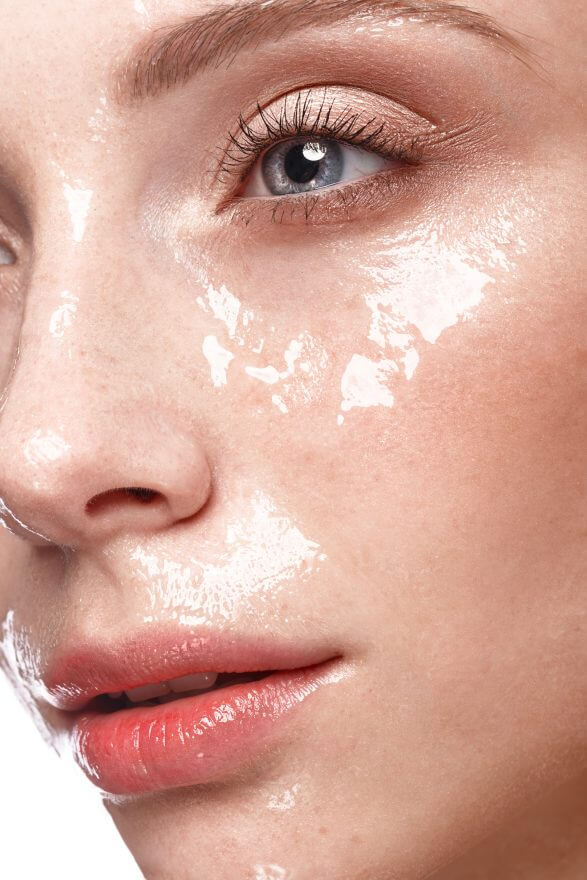


How to Incorporate Hyaluronic Acid into Your Skincare Routine
Step 1: Cleanse
Start your skincare routine by cleansing your face with a gentle cleanser suitable for your skin type. This will remove any impurities and prepare your skin for the next steps.
Step 2: Tone
After cleansing, apply a hydrating toner to your skin. Look for a toner that contains hyaluronic acid to provide an extra boost of hydration and help balance your skin’s pH levels.
Step 3: Serum
Next, apply a hyaluronic acid serum to your face and neck. Serums are highly concentrated formulations that penetrate deeply into the skin, delivering intense hydration and other beneficial ingredients. Gently massage the serum into your skin until fully absorbed.
Step 4: Moisturize
Follow up with a moisturizer that contains hyaluronic acid. This will help lock in the moisture provided by the serum and create a protective barrier on the skin’s surface. Choose a moisturizer suitable for your skin type, whether it be a lightweight gel for oily skin or a richer cream for dry skin.
Step 5: Sun Protection
Never skip sun protection, even on cloudy days. Apply a broad-spectrum sunscreen with at least SPF 30 to protect your skin from harmful UV rays. Look for a sunscreen that is non-comedogenic and offers additional benefits such as hydration or antioxidant protection.
Step 6: Eye Care
Don’t forget to care for the delicate skin around your eyes. Use an eye cream or serum that contains hyaluronic acid to hydrate and plump this area, reducing the appearance of fine lines and dark circles.
Tips for Maximizing the Benefits of Hyaluronic Acid
Tip 1: Use Hyaluronic Acid Products Consistently
To see noticeable results, it’s important to use hyaluronic acid products consistently. Incorporate them into your daily skincare routine and follow the recommended usage instructions for each product.
Tip 2: Layer Hyaluronic Acid Products
To enhance the hydrating effects of hyaluronic acid, consider layering different products that contain this ingredient. Start with a hyaluronic acid toner, followed by a serum and moisturizer that also contain hyaluronic acid. This layering technique ensures that your skin receives multiple doses of hydration.
Tip 3: Combine Hyaluronic Acid with Other Beneficial Ingredients
Hyaluronic acid works well in combination with other beneficial skincare ingredients. Look for products that contain ingredients like vitamin C, niacinamide, or peptides, which can further enhance the skin’s hydration, brightening, and anti-aging effects.
Tip 4: Hydrate from Within
While topical products can provide external hydration, it’s also important to hydrate your skin from within. Drink an adequate amount of water daily and consume foods that are rich in water content, such as fruits and vegetables. This will support your skin’s overall hydration and health.
Tip 5: Protect Your Skin from Environmental Damage
In addition to using hyaluronic acid, take steps to protect your skin from environmental damage. Limit sun exposure, wear protective clothing, and always use sunscreen. Avoid smoking and exposure to pollutants, as these can accelerate skin aging and diminish the benefits of hyaluronic acid.
Additional Uses of Hyaluronic Acid
Use 1: Joint Health and Lubrication
Hyaluronic acid is not only beneficial for the skin but also plays a crucial role in joint health. It helps to lubricate the joints, reducing friction and promoting smooth movement. Hyaluronic acid injections are often used to treat conditions such as osteoarthritis, providing relief and improving joint function.
Use 2: Eye Health
The eyes also benefit from the hydrating properties of hyaluronic acid. Eye drops that contain hyaluronic acid can provide relief for dry, irritated eyes by moisturizing and lubricating the surface of the eye.
Embrace the Power of Hyaluronic Acid
Hyaluronic acid is a true hero when it comes to skincare. Its exceptional ability to hydrate, plump, and rejuvenate the skin makes it an invaluable ingredient in our quest for healthy and youthful-looking skin. By incorporating hyaluronic acid products into our daily skincare routine and following these tips, we can maximize its benefits and achieve the radiant and hydrated complexion we desire. So, don’t wait any longer – embrace the power of hyaluronic acid and let your skin glow with vitality!







